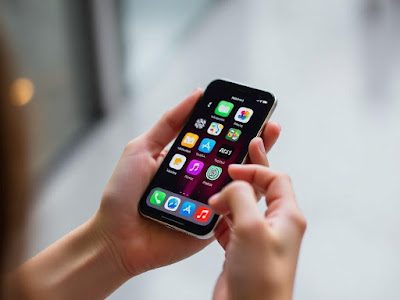Digital Detox: Reclaiming Your Time in a Screen-Obsessed World
In our hyper-connected society, digital devices are more than just tools; they have become extensions of ourselves. While technology brings countless benefits, it can also lead to screen fatigue and a sense of disconnection from the real world. With increasing awareness of digital health, many people are seeking ways to reduce screen time and achieve a more balanced life. In this blog, we'll explore the concept of digital detox, its benefits, strategies for reducing screen time, and how to reclaim your time and mental well-being.
Understanding Digital Detox
A digital detox refers to a period during which a person refrains from using digital devices, particularly smartphones, computers, and social media. The goal is to reduce stress, improve mental clarity, and foster deeper connections with the physical world and the people around you.
1. Why is Digital Detox Important?
Mental Health: Excessive screen time has been linked to increased anxiety, depression, and feelings of isolation. A digital detox can help alleviate these issues by encouraging real-life interactions and reducing the pressure to be constantly connected.
2. Improved Focus and Productivity: Constant notifications and multitasking can hinder our ability to concentrate. A break from screens can enhance focus and lead to higher productivity in both personal and professional tasks.
3. Better Sleep Quality: Blue light emitted from screens can disrupt sleep patterns. Reducing screen time, especially before bed, can lead to better sleep quality and overall health.
Signs You Need a Digital Detox
How do you know if it's time for a digital detox? Here are some common signs:
1. You find yourself mindlessly scrolling through social media.
2. You experience anxiety when you're unable to check your phone.
3. Your sleep is disrupted by late-night device usage.
4. You feel disconnected from family and friends due to device distractions.
5. Your productivity has decreased because of constant interruptions.
Tips for Reducing Screen Time:-
1. Set Screen Time Limits
Utilize apps that track and limit your screen time. Many smartphones come with built-in features that allow you to monitor your usage and set daily limits.
2. Create Tech-Free Zones Designate specific areas in your home where devices are not allowed, such as the dining room or bedroom. This encourages more face-to-face interactions and restful sleep.
3. Schedule Screen-Free Times Establish regular intervals during the day where you consciously unplug. This could be during meals, family time, or before bedtime.
4. Engage in Offline Activities
Rediscover hobbies that don't involve screens, such as reading, painting, gardening, or going for a walk. Engaging in physical activities can provide a refreshing break from technology.
5. Practice Mindfulness Incorporate mindfulness practices such as meditation or yoga into your routine. These activities can help you become more aware of your device usage and reduce the urge to check your phone constantly.
The Benefits of a Digital Detox
Taking the time to unplug can lead to numerous benefits that enhance your overall quality of life:
1. Enhanced Relationships: Spending less time on devices allows for deeper conversations and connections with family and friends.
2. Increased Creativity: With less screen time, your mind is free to wander and explore new ideas, leading to greater creativity and inspiration.
3. Improved Physical Health: Reducing sedentary screen time can lead to increased physical activity and better overall health. You may find yourself more motivated to exercise when you’re not glued to your devices.
4. Greater Awareness: A digital detox can help you become more present in your surroundings, fostering mindfulness and appreciation for the world around you.
How to Start Your Digital Detox
Identify Your Goals: Determine what you want to achieve from your digital detox. Whether it’s reducing anxiety, improving sleep, or enhancing relationships, having clear goals can help you stay motivated.
1. Choose Your Duration: Decide how long you want your detox to last. This could be a weekend, a week, or even longer. Start small and gradually increase the duration as you become more comfortable.
2. Communicate Your Plans: Inform friends and family about your digital detox so they can support you and understand your need to unplug.
3. Reflect on Your Experience: After your detox, take time to reflect on the experience. How did it make you feel? What did you learn about your relationship with technology? Use these insights to guide your future screen time habits.
Conclusion: Embrace a Balanced Life
As our lives become increasingly intertwined with technology, taking the time for a digital detox can provide the balance we need. By reducing screen time and re-engaging with the world around us, we can improve our mental health, strengthen relationships, and enhance our overall quality of life. So, take a deep breath, unplug, and embrace the beauty
of the present moment—your well-being will thank you!









Comments
Post a Comment